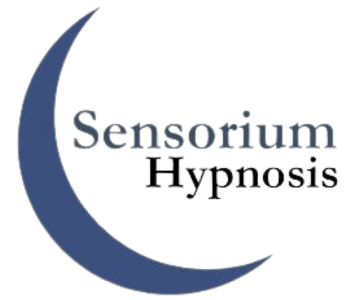Having cut yourself off from friendships or family; hobbies or same-sex outings; self-care or downtime, and many other accoutrements of a healthy balanced life – naturally, there will be anger and resentment.
Feeling betrayed by family, neighbors, friends or even kids who either take sides or disappear into the abyss of discomfort rather than attempt to maintain a relationship with you – of course, you will feel unloved, unworthy, or abandoned. You may question whether these relationships were all that genuine in the first place. Or if they’d be less cavalier with your feelings if they really knew the truth.
You will make-up stories in your head about who thinks what and why – and in your weakest hours, you may seek an unhealthy outlet or be tempted to exercise some repressed teenage rebellion. There may come a time when you deeply regret some of these less inspired choices, which you will not fully understand until much later in your recovery. Yet this kind of cognitive dissonance will create feelings of self-doubt and self-betrayal.
As far as your finances – you now realize the time you’ve lost in self-sacrifice far surpasses anything you may have walked away with monetarily. And that even in the most contentious of circumstances, money could hardly shore-up the egregious acts of disrespect you personally endured. This will cause some anxiety and depression. And when this passes, a feeling of fear or panic may set in worrying whether you will be able to financially sustain yourself in the years ahead.
Realizing now that no one is perfect – you’ve convinced yourself that if you could just avoid the top 3 horror traps in your next relationship – narcissism, addiction, and infidelity – you’d happily pursue someone new. The emotional bond or the physical chemistry piece is not entirely a deal-breaker which is the sad truth at this early stage in your own recovery. Because anything would feel better than being alone – or even worst, dying alone – as you find your mind drifting off into the “worst case scenario.”
Sure, there will be stronger moments when you fantasize about the lifestyle of a spinster or confirmed bachelor on a sort of extended holiday with the kind of freedom others admire. But even you know this scene becomes less alluring the more time passes by. What are the odds one or two of your most respectable friends will be in the same boat at the same time in the same city and ready to create a sort of makeshift family?
As you look around, you will imagine everyone married or coupled-up, happy and thriving. This will annoy you and any social invitations from your married friends will be interpreted as an obligatory, third wheel charity gesture. Everyone at these social events will of course be married.
For a while, you will pass over normal/healthy prospects because they are either dreadfully boring or must be hiding their history as a felon. You will find someone equally unhealthy as your ex, just in less conspicuous ways. You will be dismissive to friends and family who diplomatically share their concerns of your new love. You may even valiantly defend this new partner ignoring all the red flags until his/her pathological nature becomes too overt for even you to deny. You will reluctantly break things off and mentally beat yourself up for not seeing the signs earlier, but again, later you will realize THIS too is all a part of the process.
Perhaps you can relate to some or all these little vignettes which come from various clients over the years who have sought respite and recovery in my space. How did they persevere? What was their formula for beginning anew? How quickly did they recover? I can tell you that no two people experience loss the same way, nor do the same tools, protocol or timeline necessarily work for clients with similar presenting issues. Healing isn’t a linear process and because there is no predictable order of operations for moving through one’s pain, our sessions will always come from a more flexible, intuitive place.
There are SO many factors that impact and influence healing and recovery – childhood trauma, family patterns and prior history of neglect or abuse, addiction issues, support system, mindset, inner dialogue, openness to change – and more! And for most folks – having someone outside their circle of not-so objective friends and family to process and adjust is critical. Moreover, finding a less conventional therapeutic setting where one can indeed delve into their own unhealthy patterns and recurrent life themes WITHOUT spending months on end rehashing the obvious seems rather ideal.
For those who find the courage to step into my space – what they typically walk away with is the beginning of a more gratifying life with a new set of new rules that don’t involve settling for less than they deserve, lamenting their mistakes, second guessing themselves or seeking validation from others. And THIS is the kind of freedom and empowerment that sets the stage for healthy outcomes.
Would you like support recovering from unhealthy relationship patterns? Schedule a free consultation at Sensorium Hypnosis & Mediumship, LLC (timetap.com).
How can Hypnosis help with weight loss? To learn more, click here: Weight Gain: How Trauma, Stress & Unconscious Conflicts are Keeping You Stuck – Sensorium Hypnosis & Mediumship, LLC
For free educational and healing videos, please subscribe to my YouTube Channel: Amy the Hypnotist – Trauma & Relationship Expert – YouTube
- Spirit-Assisted Dream Interpretation: Unlocking the Soul’s Messages Through Hypnotherapy & Higher Guidance - June 26, 2025
- Spiritual Hypnotherapy and the Shift from Religion to Soul-Centered Living - May 13, 2025
- The Spiritual Cost of Overconsumption: Why Simplicity Attracts True Abundance - May 11, 2025

